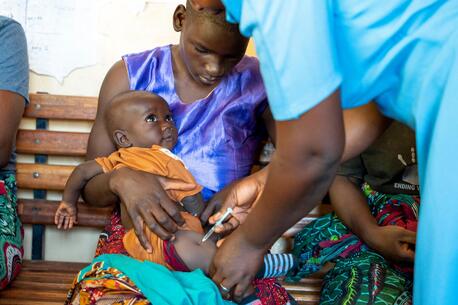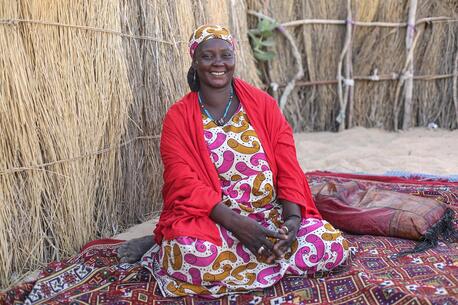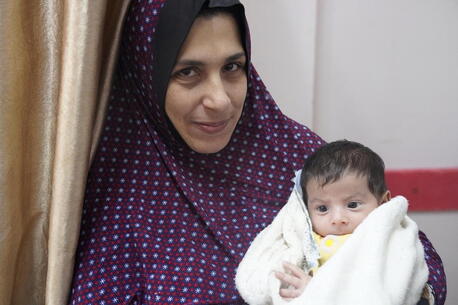
Babies Born Into Chaos of War in Gaza Need Help Now
Every 10 minutes, a baby is born in the Gaza Strip. UNICEF is working with partners to keep mothers and children alive in a war zone, despite overwhelming challenges. "We cannot wait any longer for a humanitarian ceasefire to end the daily killing and injuring of children and their families, enable the urgent delivery of desperately needed aid and the safe and unconditional release of the two remaining Israeli children still held hostage in Gaza," said UNICEF Deputy Executive Director Ted Chaiban.
In all wars, it is children who suffer first and suffer most
Since Oct. 7, 2023, nearly 20,000 babies have been born into the unfolding humanitarian catastrophe in the Gaza Strip. Mothers face unimaginable challenges in accessing adequate medical care, nutrition and protection before, during and after giving birth. The health care system is collapsing under constant bombardment while a slow and unpredictable inspection process continues to prevent delivery of adequate supplies from reaching displaced families with nowhere safe to go.
On a recent visit to Gaza, UNICEF Communication Specialist Tess Ingram spoke with patients at the Emirati maternity hospital in Rafah, one of only a few medical facilities still functioning. “The day there was a welcome reminder of the strength of life amid the chaos of war," she said. "But it was also the most heartbreaking of the seven days I spent in Gaza."
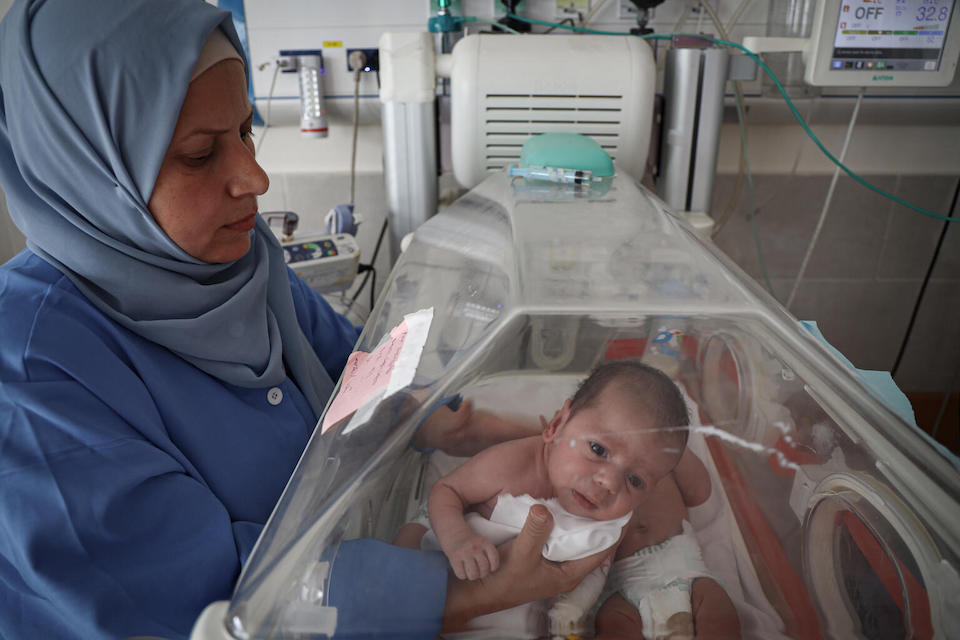
Newborns and their mothers face inhumane conditions
The Emirati maternity hospital now caters to the vast majority of pregnant women in the Gaza Strip. Struggling with overcrowded conditions and limited resources, staff are forced to discharge mothers within three hours of a cesarean section.
A nurse told Ingram she had performed emergency C-sections on six dead women in the past eight weeks. "She tells me that there are also more miscarriages because of the unhealthy air and smoke due to the bombing," Ingram said. "This has happened more times than [she] can count."
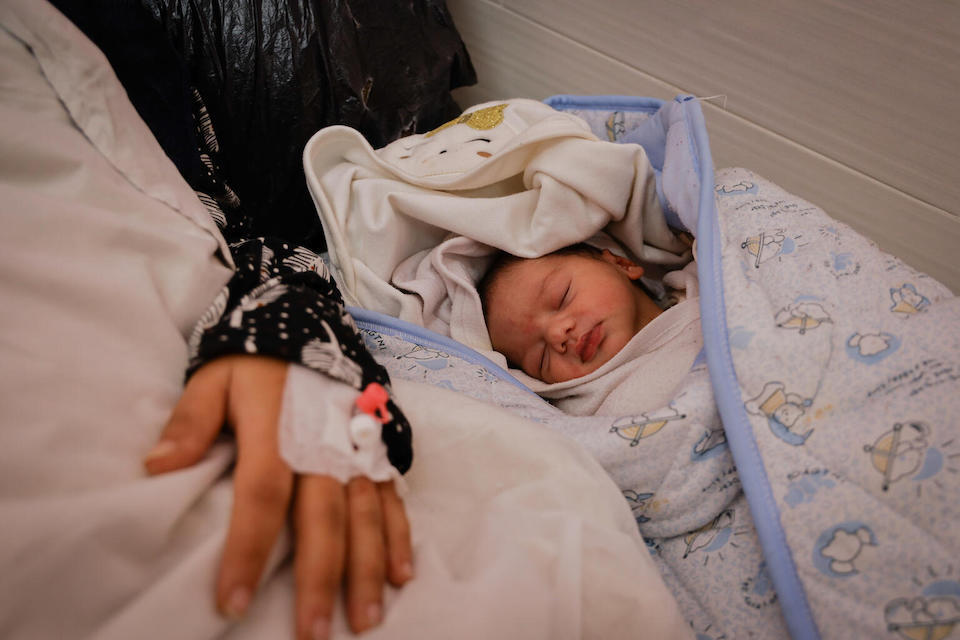
Makeshift shelters, poor nutrition, unsafe water — conditions like these put mothers at risk not only of miscarriages, but also stillbirths, preterm labor, maternal mortality and emotional trauma. The trauma of war also directly impacts newborns, resulting in higher rates of undernutrition, developmental issues and other health complications.
“Let’s not forget," Ingram added, "this is in the southern half of Gaza. Despite relentless efforts, UNICEF has been unable to access the north, where the situation is, incredulously, worse."
The entire population of the Gaza Strip is in crisis or worse levels of acute food insecurity, particularly children. Lack of access to nutritious food is putting approximately 135,000 children under age 2 at risk of severe malnutrition.
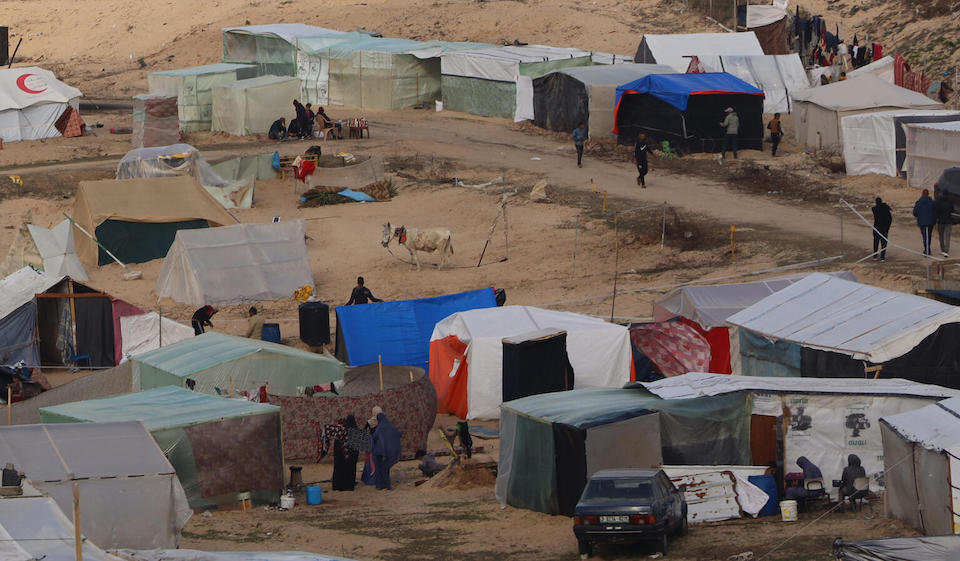
A nightmarish start to life
As Ingram moved through the hospital, women shared their stories. Iman was eight months pregnant when she ran, terrified, through the streets of Gaza City during an air strike. Now, 46 days after a cesarean, she is hospitalized with a severe infection, too weak to hold her new baby, Ali.
Another new mother, Amal, was buried under rubble when she was six months pregnant. She couldn't feel her baby move for a week. Fortunately, baby Sama was born healthy the day before Ingram visited the hospital. But Amal, still injured and sick, was preparing to take Sama home — a makeshift shelter on the streets of Rafah.
Mashael's house in central Gaza was hit and her husband was trapped under the ruins for several days. Her baby stopped moving inside her. "She says she is sure now, about a month later, that the baby is dead," Ingram said. Still waiting for medical care, Mashael told Ingram that it was best that “a baby isn’t born into this nightmare.”
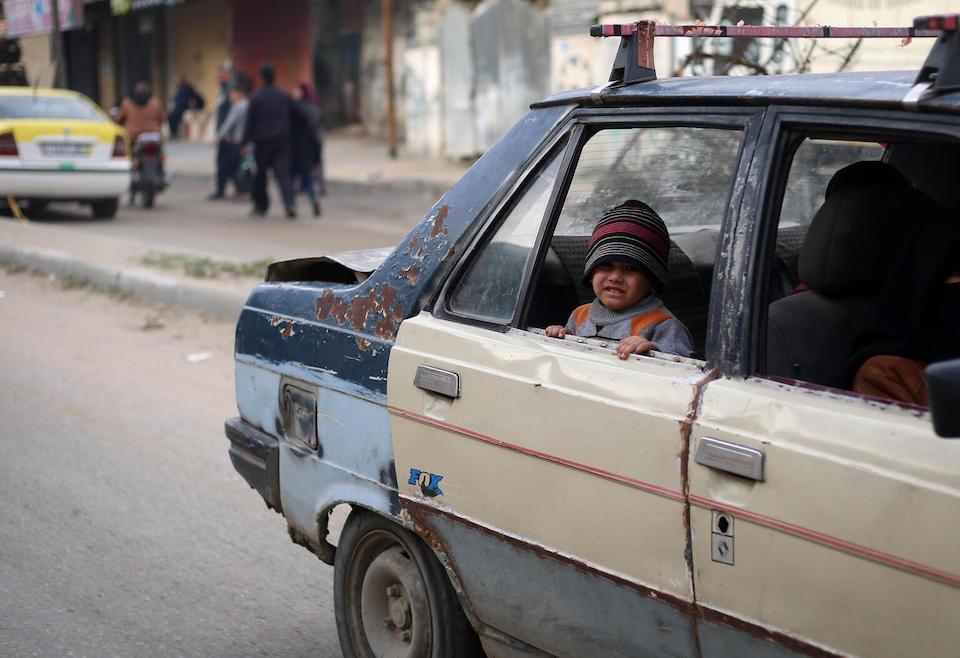
UNICEF is calling for greater access to deliver critical emergency supplies
Between the start of the hostilities and Jan. 17, at least 24,620 Palestinians have been reported killed in Gaza; up to 70 percent are women and children. More than 61,830 people have been injured. Thousands of children continue to be reported missing and are likely to be injured or killed under the rubble of destroyed buildings.
UNICEF and partners continue to press for more access to both northern and southern Gaza to deliver urgently needed essentials. According to the latest situation report, between Oct. 21, 2023 and Jan. 17, 2024, UNICEF moved 343 truckloads into the Gaza Strip, bringing in critical emergency supplies, health items and supplementary foods. Between Jan. 11 and Jan. 17, UNICEF:
- provided over 99,280 liters of fuel to run water wells and desalination plants, reaching over 1.3 million people with water, including more than 670,000 children
- supported cleaning services at 28 overcrowded shelters, to address solid waste and environmental hygiene needs, benefiting over 169,235 people, including 86,300 children.
No fuel convoys were allowed into northern Gaza, leaving thousands of people with very limited water and sanitation services.
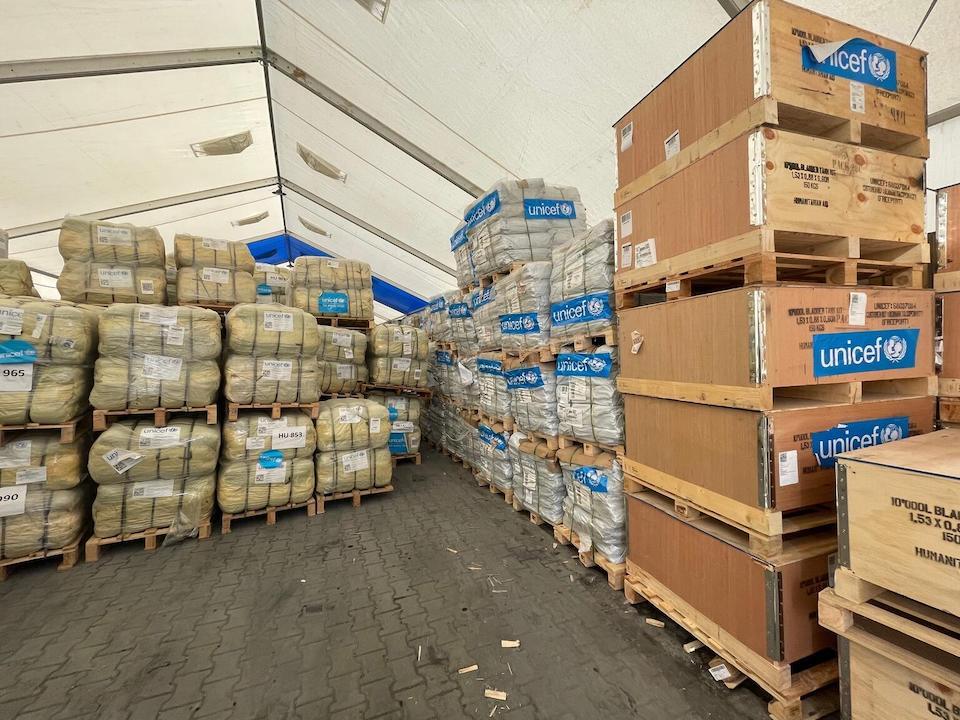
Last week, after three days in Gaza, UNICEF Deputy Executive Director Ted Chaiban said, "Since my last visit, the situation has gone from catastrophic to near collapse ... This is nothing short of a staggering decline in conditions for the children of Gaza. If this decline persists, we could see deaths due to indiscriminate conflict compounded by deaths due to disease and hunger. We need a major breakthrough."
Chaiban called for an end to the intense bombardment, which is not only killing thousands, but is also impeding the delivery of aid to survivors. "We have to get more trucks in, do so via more crossings, and with far more efficient inspection processes," he said.
"We are trying to drip assistance through a straw to meet an ocean of need." — UNICEF Deputy Executive Director Ted Chaiban
"Before the conflict, more than 500 trucks entered the Gaza Strip daily," Chaiban continued. "When I was there in November, about 60 aid trucks a day entered. Now, it is about 130 trucks a day alongside an average of 30 commercial trucks a day. This is with the opening of a second crossing point but it still remains wholly inadequate. We are trying to drip assistance through a straw to meet an ocean of need."

